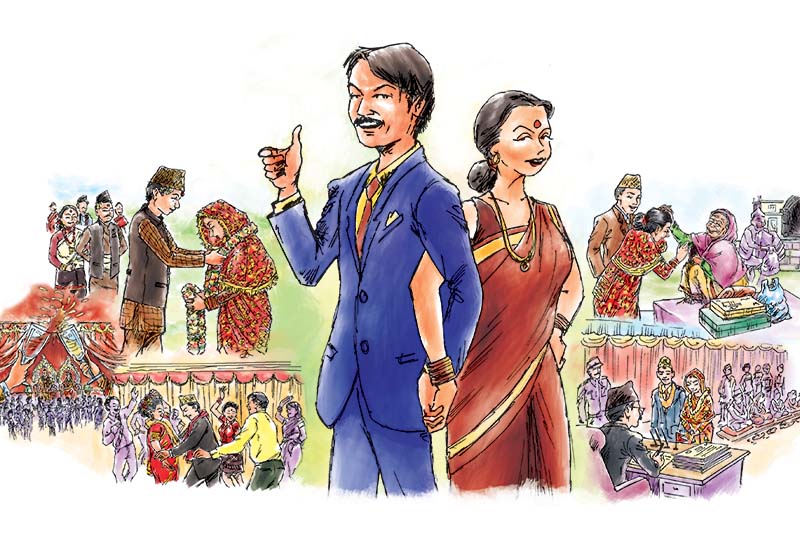Laws related to polygamy contradictory
Kathmandu, June 30
The newly enacted civil and penal codes, which will come into force on August 17, contain contradictory provisions related to polygamous marriage.
Section 175 of the Muluki Criminal Code Act, 2017, clearly outlaws polygamy whereas Section 74 of the Muluki Civil (Code) Act, 2017, says that a couple would be deemed married if their physical relations result in child birth.
Section 175 of the penal code also states that if a married man marries another woman, then such a marriage will be automatically annulled.
Section 74 of the civil code, however, states that a couple would be deemed married if their cohabitation results in child birth with the exception of rape and incestuous relations.
Section 72 of the Civil Code does not say that polygamous marriage will be automatically annulled.
Advocate NirmalaBhandari said unlike the penal code, the civil code provisions allowed polygamy. “These two contradictory provisions are going to create problems for the courts,” she said, adding that the law should have contained provisions to ameliorate the plight of those women who fall in the trap of unscrupulous men and marry them without knowing that their grooms are already married. She said that the law should make provisions for providing alimony and other benefits to women if they were tricked by married men into marrying them.
Another Advocate Meera Dhungana said the provisions of the two codes were not in conformity with each other and hence the government needed to ensure that the two laws were amended before they were enforced on August 17.
Ministry of Law, Justice and Parliamentary Affairs Sher Bahadur Tamang told THT that his ministry was looking into the discrepancies between the two codes with a view to amending them before they were enforced.






